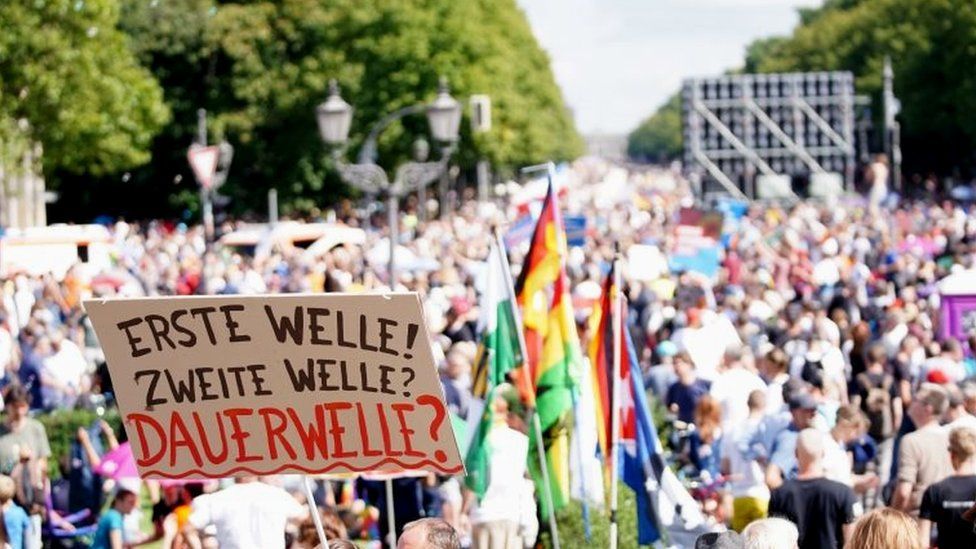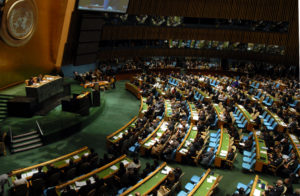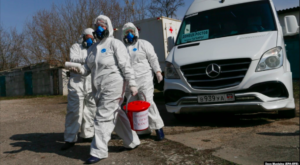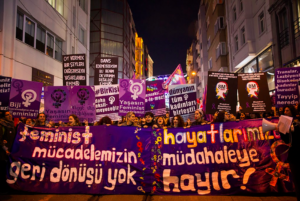In March 2020, schools, businesses and sporting events shut down as life as we knew it in Europe and around the world was completely altered. As leaders implemented travel restrictions and lockdowns, many Europeans wondered just how long the COVID-19 virus would last.
Deniers of the threat presented by the novel coronavirus sprang up all over Europe. Notoriously, their voices were heard with protests in Berlin, Germany, forcing police to step in and stop a naysayer’s march. More than 20,000 people flooded the streets to speak against the COVID-19 “hoax.”
Daniel Jolley, a senior lecturer in psychology at Northumbria University and an expert in conspiracy theories, told the New York Times that the growing number of conspiracy theorists was not surprising.
“People are drawn to conspiracy theories in times of crisis,” Jolley said. “When there is something happening — a virus outbreak, rapid political change, the death of a celebrity, a terrorist attack — it breeds conspiracy theories.”
It’s March again. But this time, the seriousness of COVID-19 cannot be questioned. As of March 4, more than 547,000 deaths have been reported in the EU with over 22 million total cases and at a mortality rate of 70 people per one million inhabitants.
As the world moves into the second year of life in a pandemic, it is important to reflect on how the gravity of the past year shifted our lives. But also, we need to think about how such death tolls could have been mitigated without the massive denial from reporters and citizens.
One year ago, Simon Jenkins published his op-ed, Why I’m taking the coronavirus hype with a pinch of salt in The Guardian., Jenkins’ piece, which has not aged well, was one of many that, at the time, sneered at people for being hysterical if they thought COVID-19 might be quite a big deal. The article criticizes UK Prime Minister Boris Johnson’s “ridiculous attempt,” to induce calm in British citizens, then references the bird flu of 1997, the swine flu in 2009 and finishes it off by taking a jab at BBC commentators for constantly telling people to wash their hands. In his words, “the BBC must be sponsored by the soap industry.” Jenkins thought any article on COVID-19 containing the words “might,” “could,” “possibly” and “worst-case scenario” were articles people should immediately stop reading because it was “war talk.”
It was not just Jenkins. In March 2020, this was a very widespread view around the same time – and from all sides of the political spectrum. This kind of commentary had little to do with the virus, but was based on the idea that the media and the government wanted people to live in fear.
Jenkins believed the media fell for the hype of the present health threat and referenced how, historically, things were not as bad as they initially seemed. He acknowledged that millions could die and he could be wrong. He also thought that the virus could be gone by spring 2020. In fact, the ‘“hype” at the time was mostly under-predictions about the impact.
Fondation Jean Jaurès, a Paris-based research institute, found that many opponents of mask-wearing believed it was useless or dangerous to their health and a tool of oppression by the government and media. The study conducted in September 2020 reported almost 43% of the French population believed the country’s Health Ministry was in collusion with pharmaceutical companies to hide facts about the harmfulness of vaccines.
Europe recorded one million new COVID-19 cases last week, an increase of 9% from the previous week and a reversal that ended a six-week decline in new infections, the World Health Organization said Thursday. New variants of the coronavirus, namely one found in the U.K., are partially responsible for the increase in positive cases. WHO experts warned that it is up to 50% more transmissible than the virus that surged last spring, making it more adept at thwarting measures that were once effective against the virus.
Doubt en masse serves as the basis for every extremist ideology and, as we saw a year ago, many are capable of being sucked into it. As we recognize the severity of the beginning of COVID-19 a year ago this month, we can also acknowledge the progress that has been made to get life back to normal and just how much that process is hindered by deniers of the situation. When presented with an unknown, it may not be such a bad thing to believe in the government and media.
Photo: Protesters near the Victory Column hold a banner reading “first wave, second wave, permanent wave?” Credit: https://www.faz.net/aktuell/politik/inland/kritik-an-der-corona-politik-querdenker-sind-heimatlos-16936794.html








Be First to Comment